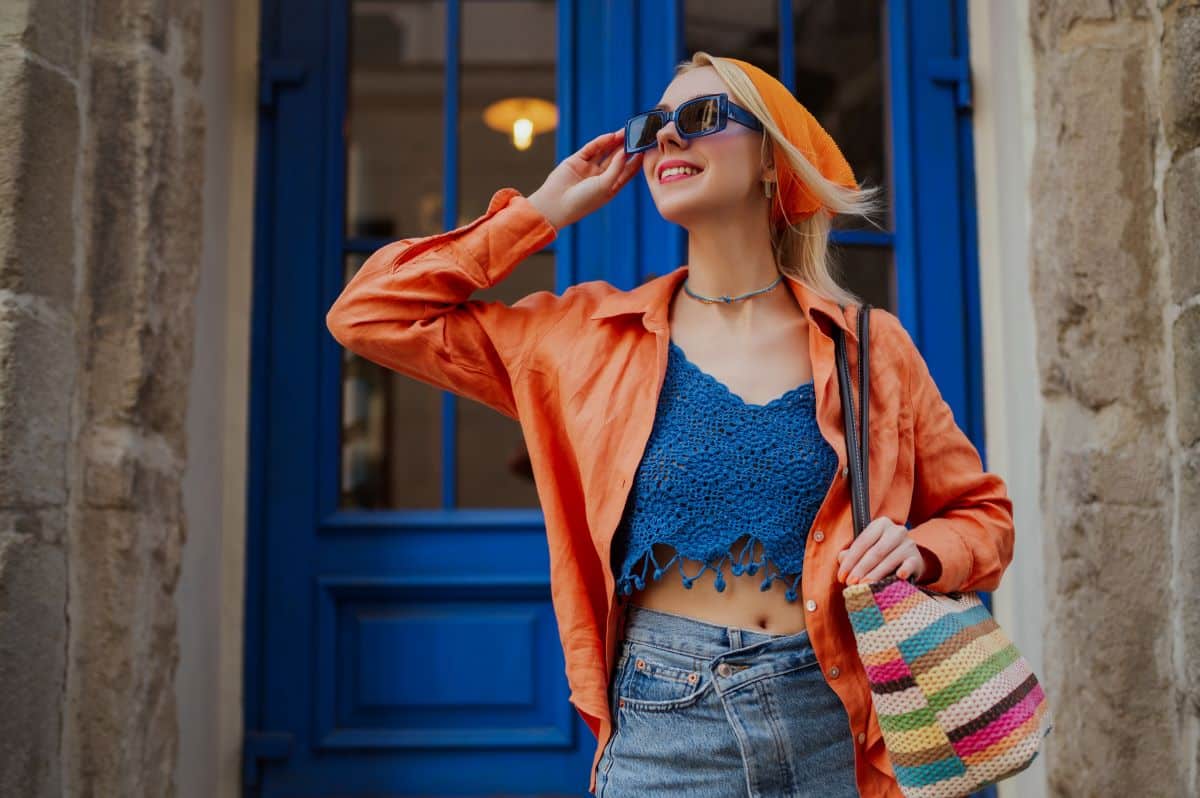As the fashion industry faces increasing scrutiny over its environmental impact, circular fashion emerges as a sustainable solution, promising a system where clothing life cycles are extended, waste is reduced, and the environment is respected. Are you ready to explore how your wardrobe choices can contribute to a healthier planet?
1. Rent the Runway

Rent the Runway has revolutionized how we think about fashion by offering a rental model for high-end attire, encouraging reuse and reducing the number of items that end up in landfills each year.
2. Patagonia’s Worn Wear Program

Patagonia leads by example with its Worn Wear program, which repairs, recycles, or resells its clothing. This initiative extends the life of garments and significantly cuts down on waste and resource consumption.
3. Stella McCartney’s Sustainable Luxury

Stella McCartney’s brand has been synonymous with sustainable luxury fashion, using eco-friendly materials like organic cotton, recycled polyester, and bio-acrylics in her designs to promote circularity.
4. Eileen Fisher’s Renew Program

Eileen Fisher’s Renew program takes back old pieces from customers, offering them store credit and then washing, mending, or remaking the garments into new designs.
5. Adidas x Parley

Adidas collaborates with Parley for the Oceans to transform intercepted plastic waste from beaches into high-performance sportswear, demonstrating a scalable model of how to reuse materials.
6. H&M’s Garment Collecting Initiative

H&M’s garment collecting program invites customers to drop off unwanted clothing (any brand) at their stores worldwide, which are then used to create recycled textile fibers for new products.
7. Levi’s Water<Less Jeans

Levi’s focuses on reducing water usage by up to 96% in the finishing process with its Water<Less jeans technology, proving that water conservation and fashion can coexist.
8. The North Face’s Clothes the Loop

The North Face’s Clothes the Loop program encourages customers to bring in used apparel and footwear, which are then processed for reuse or recycling, supporting the brand’s commitment to sustainability.
9. Zara’s Join Life Collection

Zara’s Join Life collection uses more sustainable materials and technologies that reduce environmental impact, aligning fast fashion with circular principles.
10. Lenzing’s Eco-Friendly Fabrics

Lenzing innovates with eco-friendly fibers like Tencel and modal, sourced from renewable wood to produce fabrics that are both luxurious and compostable.
11. Mud Jeans’ Lease A Jeans

Mud Jeans offers a unique lease system where customers can rent jeans, reducing waste and encouraging recycling, with the option to keep, swap, or return the jeans after use.
12. Ganni’s Take-Back Scheme

Ganni operates a take-back scheme to collect old clothes, which are then sorted for recycling or resale, emphasizing the brand’s dedication to circular fashion.
13. Timberland’s Circular Design

Timberland designs shoes with a circular future in mind, using materials that can be recycled and creating products that are made to be remade.
14. Everlane’s ReNew Collection

Everlane’s ReNew collection features clothing made entirely from recycled plastic bottles, pushing the boundaries on using post-consumer materials in new textiles.
15. Nike Grind

Nike Grind processes post-consumer athletic footwear and surplus manufacturing scraps into new products, including apparel, playgrounds, and new footwear.
16. Marine Serre’s Regenerated Fashion

Marine Serre specializes in upcycled fashion, using unconventional recycled materials like airbag fabrics and industrial carpets to craft cutting-edge designs.
17. Vivienne Westwood’s Ethical Fashion

Vivienne Westwood champions ethical fashion by focusing on producing high-quality, long-lasting garments that reject the fast fashion model.
18. Rag & Bone’s Sustainability Efforts

Rag & Bone commits to incorporating more recycled materials into their collections and reducing waste throughout their production processes.
19. Reformation’s Climate Credits

Reformation offers customers the option to purchase climate credits at checkout to offset the carbon footprint of their purchases, promoting environmental accountability.
20. The RealReal’s Luxury Consignment

The RealReal promotes luxury consignment, extending the life of high-end goods and reducing the need for new resources in the production of new garments.
A New Standard

The rise of circular fashion signals a shift towards a more sustainable and ethical industry. By supporting these initiatives, consumers play an active role in reducing the environmental footprint of their clothing choices.
Are You Ready to Dress for the Future?

As circular fashion gains momentum, each choice we make can be a step towards a more sustainable world. Will your next outfit contribute to fashion’s green future?
The post Fashion’s Green Future: Embracing Circular Style first appeared on Mama Say What?!
Featured Image Credit: Shutterstock / Victoria Fox.
For transparency, this content was partly developed with AI assistance and carefully curated by an experienced editor to be informative and ensure accuracy.





